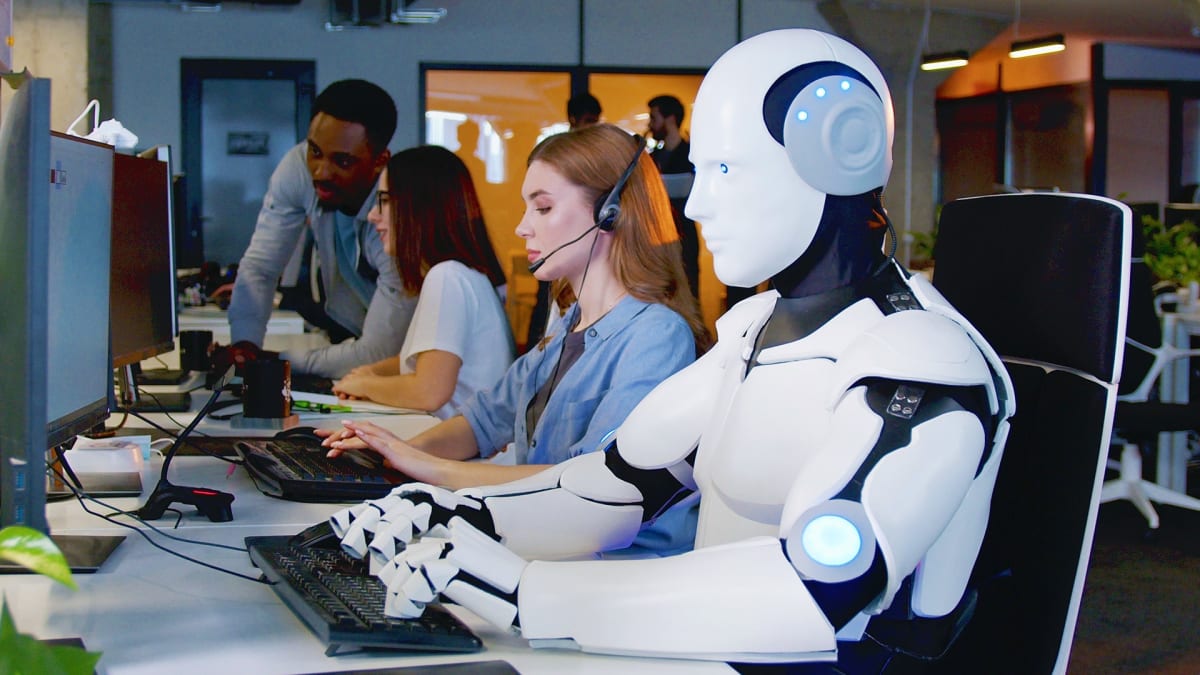
The idea of using artificial intelligence as a productivity-enhancement tool is not a new one. Machines doing more so humans can do less is a concept that is intrinsically tied to every technological revolution that the world has seen. The launch of ChatGPT simply put the somewhat intangible idea of AI within reach.
Even as big tech names like Google and Microsoft race to roll out the best AI-driven solutions to their suites of products, other companies, like Kore.ai, have a slightly different approach: gradual, responsible deployment loaded up with focused guardrails.
DON'T MISS: The Company Behind ChatGPT Is Now Facing a Massive Lawsuit
Kore.ai, which was founded by CEO Raj Koneru in 2014, offers an enterprise-level AI-powered platform designed to accomplish specific tasks. The company, which provides automation technology to sectors from healthcare to banking and travel, began to grow at a much higher rate in the past two years as companies began to understand the implications of back-end AI solutions.
In its products, Kore's approach is outlined by two things: gradual deployment and intentional guardrails.
"When we say gradual approach, generally people are calling you, whether that's a consumer calling an enterprise or an employee seeking help, for two reasons," Koneru told The Street. "One is they have a question, and they're looking for an answer, or they want to make a transaction."
AI companies, according to Koneru, can either try to handle everything at once, or they can adopt a more incremental approach. Kore.ai prefers the latter.
"You could go that way, when you try to handle everything at once. It just takes you longer to build the solution, and then be able to deploy it," Koneru said. "Once we deploy," Kore studies the results to see "what's working, what's not working, people also move from one type of request to another type of request. Some types of use cases will give you incremental success rather than a big-bang approach, if you will."
More Business of AI:
- Here's the Startup That Could Win Bill Gates' AI Race
- Meet Your New Executive Assistant, A Powerful AI Named Atlas
- The Company Behind ChatGPT Is Now Facing a Massive Lawsuit
Koneru's solution to AI hallucination -- when an AI bot generates false information -- is similarly meticulous. Each bot that is powered by Kore's platform is handcuffed with a series of business-specific guardrails that ensure the AI is operating, not only responsibly, but within the rules of that individual business.
"Our platform uses large language models as needed in different parts of that journey. You build a bot in our platform, and use the tools and the capabilities that we provided to then run it," Koneru said. "So the hallucination problem is not a problem for us because we control that LLM using the guardrails that we provide for the task we want it to do."
The Balance Between Productivity and Job Loss
One of the less dramatic, though no less serious concerns many have with AI revolves around the pending economic impact it might incite. Already, 4,000 jobs were lost in May due to the blossoming technology. And it doesn't look like the situation will improve; the World Economic Forum said in May that it expects many clerical and secretarial roles to decline in the coming years as AI virtual assistants, like the ones Kore creates, become the norm.
But Koneru thinks the answer to that question of impending job loss is wrapped up in a better understanding of what, exactly, these virtual assistants are meant to do.
"With generative AI and conversational AI, what are we attempting to do? We're attempting to do a very, very simple thing. We're attempting to service customers, for the low-value use cases that a human is not needed," Koneru said. "What we're doing is we're taking that low-value stuff and automating it using AI so those people who are handling that low-value stuff can then move towards handling more high-value stuff."
The concept of integrating AI into corporate environments, for Koneru, is one that is meant to not only improve productivity but provide more value to businesses and consumers, with employees having to worry about fewer insignificant transactions.
"At the end of the day, these technologies are not going to replace human experience. It's just taking knowledge that's in text or other kinds of content and learning to do a few tasks," Koneru said, echoing similar comments from OpenAI's Sam Altman in June. "For all the broad imaginations that people go wild about and think that machines are going to rule the world, let's be very clear here, today, generative AI can only do a few tasks."
"It's a useful assistant, but the assistant doesn't replace me. That's the way to think about it, at least for the next five or 10 years."







